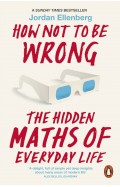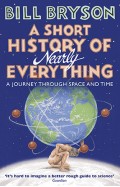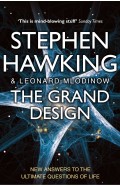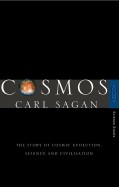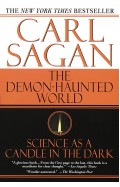Theories of Everything
By: Frank Close
-
Rs 1,435.50
- Rs 1,595.00
- 10%
You save Rs 159.50.
Due to constant currency fluctuation, prices are subject to change with or without notice.
Physicist Frank Close takes the reader to the frontiers of science in a vividly told investigation of revolutionary science and enterprise from the seventeenth century to the present. He looks at what has been meant by theories of everything, explores the scientific breakthroughs they have allowed, and shows the far-reaching effects they have had on crucial aspects of life and belief. Theories of everything, he argues, can be described as those which draw on all relevant branches of knowledge to explain everything known about the universe. Such accounts may reign supreme for centuries. Then, often as a result of the advances they themselves have enabled, a new discovery is made which the current theory cannot explain. A new theory is needed which inspiration, sometimes, supplies.
Moving from Isaac Newton's work on gravity and motion in the seventeenth century to thermodynamics and James Clerk Maxwell's laws of electromagnetism in the nineteenth to Max Planck's and Paul Dirac's quantum physics in the twentieth, Professor Close turns finally to contemporary physics and the power and limitations of the current theory of everything. The cycle in which one theory of everything is first challenged and then replaced by another is continuing right now.
Physicist Frank Close takes the reader to the frontiers of science in a vividly told investigation of revolutionary science and enterprise from the seventeenth century to the present. He looks at what has been meant by theories of everything, explores the scientific breakthroughs they have allowed, and shows the far-reaching effects they have had on crucial aspects of life and belief. Theories of everything, he argues, can be described as those which draw on all relevant branches of knowledge to explain everything known about the universe. Such accounts may reign supreme for centuries. Then, often as a result of the advances they themselves have enabled, a new discovery is made which the current theory cannot explain. A new theory is needed which inspiration, sometimes, supplies.
Moving from Isaac Newton's work on gravity and motion in the seventeenth century to thermodynamics and James Clerk Maxwell's laws of electromagnetism in the nineteenth to Max Planck's and Paul Dirac's quantum physics in the twentieth, Professor Close turns finally to contemporary physics and the power and limitations of the current theory of everything. The cycle in which one theory of everything is first challenged and then replaced by another is continuing right now.
Trinity - The Treachery and Pursuit of the Most Dangerous Spy in History
By: Frank Close
Rs 3,495.00 Ex Tax :Rs 3,495.00
Zubin Mehta: A Musical Journey (An Authorized Biography)
By: VOID - Bakhtiar K. Dadabhoy
Rs 840.00 Rs 1,050.00 Ex Tax :Rs 840.00
How Not To Be Wrong: The Hidden Maths Of Everyday Life
By: Jordan Ellenberg
Rs 3,295.00 Ex Tax :Rs 3,295.00
Is Pluto a Planet?: A Historical Journey through the Solar System
By: David A. Weintraub
Rs 7,195.00 Ex Tax :Rs 7,195.00
Beyond UFOs: The Search for Extraterrestrial Life and Its Astonishing Implications for Our Future
By: Jeffrey Bennett
Rs 6,395.00 Ex Tax :Rs 6,395.00
The Islamist Why I Became an Islamic Fundamentalist What I Saw Inside and Why I Left
By: Ed Husain
Rs 480.00 Rs 600.00 Ex Tax :Rs 480.00
The Demon Haunted World Science As A Candle In The Dark
By: Carl Sagan
Rs 3,995.00 Ex Tax :Rs 3,995.00
How Not To Be Wrong: The Hidden Maths Of Everyday Life
By: Jordan Ellenberg
Rs 3,295.00 Ex Tax :Rs 3,295.00
No recently viewed books available at the moment.
Zubin Mehta: A Musical Journey (An Authorized Biography)
By: VOID - Bakhtiar K. Dadabhoy
Rs 840.00 Rs 1,050.00 Ex Tax :Rs 840.00
Trinity - The Treachery and Pursuit of the Most Dangerous Spy in History
By: Frank Close
Rs 3,495.00 Ex Tax :Rs 3,495.00
How Not To Be Wrong: The Hidden Maths Of Everyday Life
By: Jordan Ellenberg
Rs 3,295.00 Ex Tax :Rs 3,295.00












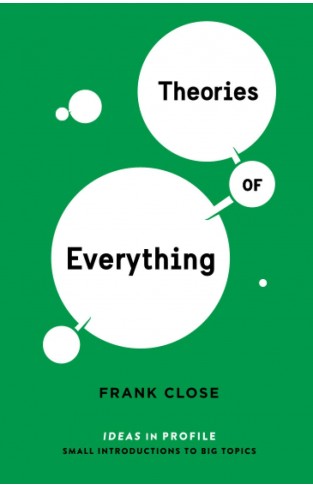
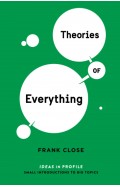
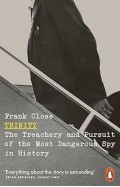
-120x187.jpg?q6)







